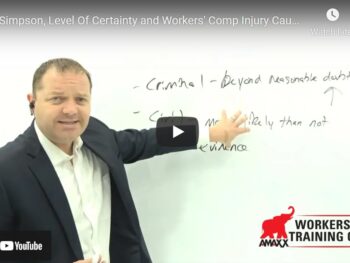A borrowed employee filed a retaliatory discharge action against the borrowing employer, contending that one day after she testified, under threat of subpoena, in a workers' compensation proceeding filed by one of defendant's employees, the borrowing employer told her that her services were no longer needed.
Defendant contended that plaintiff could not maintain a retaliatory discharge cause of action since she was not defendant's employee, that plaintiff had never been on defendant's payroll, that she had not been fired by defendant and was free to work for her employer at any time and at any work. (WCxKit)
The appellate court observed that all rights and remedies of the Workers Compensation Act applied to borrowed employees, that a borrowing employer is primarily liable for the payment of a borrowed employee's workers' compensation claim, and that the public policy considerations which led to recognition of an action for retaliatory discharge equally applied to a claim by a borrowed employee against a borrowing employer. (WCxKit)
Moreover, defendant's argument ignored the nature of a borrowed-employee relationship. In the context of that relationship, the most severe sanction a borrowing employer could impose was to refuse all further work. In that context, the sanction was tantamount to a discharge [Hester v. Gilster-Mary Lee Corporation, 386 Ill. App. 3d 1104, 899 N.E.2d 589 (2008)]. See Larson’s Workers Compensation Law: Ch. 104, § 104.07[1] n.19.1. To read more at Workers Compensation Law Community .
© Copyright 2010 LexisNexis.All rights reserved. This material is excerpted from Larson’s Workers’ Compensation Law. Reprinted with permission.
Work Comp Calculator: http://www.LowerWC.com/calculator.php
RTW Calculator: http://www.LowerWC.com/transitional-duty-cost-calculator.php
Do not use this information without independent verification. All state laws vary. You should consult with your insurance broker or agent about workers' comp issues.
©2010 Amaxx Risk Solutions, Inc. All rights reserved under International Copyright Law. If you would like permission to reprint this material, contact Info@WorkersCompKit.com






















